- Home
- Linda Byler
Hester on the Run Page 23
Hester on the Run Read online
Page 23
“For Fever. Take one pound of the bark of the yellow birch tree, half-pound sweet flag, half pound of tag elder bark, two ounces thorough wort, two ounces tansy dry. Boil down with water to a liquor. One dose every two hours till shakes come on.”
She stopped, staring wistfully at the black, cold rectangle of the window, wondering. Would Kate have survived had she been given these ancient remedies?
“For Weakness.”
“To Strengthen the Leg and Feet.”
“For Coughing Blood.”
“For the Lungs.”
“For the Pleurisy.”
“Burdock leaves, white root, unkum root, pennyroyal tea, bud of lobelia, skunk cabbage, Indian turnip, chamomile flowers, seed of the silverweed.”
Hester knew all of these.
She wrinkled her nose at the prescribed “ox dung, mixed with yarrow, half part Jacob’s ladder.”
Sighing, she held the book to her breast, bent over it, and thanked her Father in Heaven for Theodore Crane’s assistance. She smiled, remembering the way his blue eyes danced with merriment, reciting the old Indian ways of healing.
“Mouse dung mixed with the lard of a boar”?
“Coltsfoot snake root”?
What was “gravel”? “A glass of the juice of onion tops” to cure the “gravel”?
Theodore said he believed that “gravel” meant kidney or gallstones. Hester nodded, wrote it down carefully, asking how to spell kidney.
They laughed together at the remedy for dull sight. “The skunk’s musk bag steeped in boiling water.” The laugh they shared was so genuine, Hester felt as if she had made a lifelong friend.
Theodore was so polite that night as he scurried around, seeing to her needs. He spread a clean, white sheet on his bed and turned the pillow over. He insisted that he would be fine rolled up in a coverlet by the fire.
She’d slept in her dress, for there were no partitions for privacy. He assured her he would leave the house when she crawled into bed, but she wanted to sleep in her dress. He lay awake, blinking into the red embers of the fire, thinking how strange this was to have a woman, no, a girl, in his bed, something that had never occurred before.
For Hester, there was only a sadness, a fondness.
He could not fathom what would become of her. He had no doubt in his mind that she could survive on her own if it came right down to it. He knew she was treated only slightly better than a slave, and that happened because of the base nature of the woman Hans had the poor fortune to marry. Well, he’d take her to Lissie. She’d know what to do.
Hester’s life continued much as before. She counted the days by Xs inscribed in the old book of Indian remedies. She took the hissing, scolding voice of her stepmother like a bitter potion, swallowing it, hiding her pain.
She put on the same serene face for church every two weeks, dressed in brilliant dresses covered by a white cape and apron. Her face was as undecipherable as everything else about her. Refusing to go with the youth, she had no friends. The few girls who coaxed her to go to the hymn singings and Saturday evening hoedowns dwindled down to one, and finally she gave up.
Hester roamed the woods on those days when other girls were preening, dressing themselves in their finery, making plans and giggling, their main interest the boys who would pick them up in their wagons. She found the plants and roots she searched for, held them, cradling them in the palms of her hands. She sniffed them all appreciatively, storing each scent in her memory.
When the snow melted, leaving old, wet undergrowth exposed but patches of snow still lay beneath the pine trees on the north slopes, she searched the woods with new desperation. She dug feverishly at the roots she believed would be needed, and soon. Her keen eyes had observed the involuntary quivers in Annie’s hands. Often the plates she carried to the table rattled without reason. Sometimes, when Annie sat at her spinning wheel, she would suddenly throw the thread of flax, but her foot would cease its pumping, bringing the whirring sound of the wheel to a stop. She would shift her hands between her knees, bend forward, and rock over them, her lips twisted in frustration.
Hester believed she had palsy of the hands. She would need a concoction of sage mixed with mustard root, stirred into boiling water. She should soak her hands in this mixture as often as possible to get relief.
Would she be able to redeem herself in Annie’s eyes, Hester wondered, by the cures from her ancestors? She thought of it, dreamed of healing Annie’s hands. Perhaps Annie would be able to forgive the color of her skin, the alien brown hue that forever marked her.
Hester stored the herbs in the box, separating them with scraps of stolen skins. She read the old volume scrupulously now. Very seldom did she sleep before the clock struck midnight.
She found the flax plant and tore it excitedly from the earth. Mixed with ewe’s milk, it was a powerful source for healing swollen, painful joints. She thought of Hans sitting before the fire, rubbing his right knee, his brows lowered, a grimace on his face at times when Annie was out of the house. Once he’d looked up, saw Hester’s eyes on him, and kept her gaze for only a few seconds before removing his hand from his knee. He got up, went to the wooden peg holding his straw hat, slammed it on his head with unnecessary force, grabbed the door handle, and let himself out, not looking back.
Hester folded the tablecloth she was holding. Years ago, she would have approached him with the remedy and gladly administered the poultice. Hans would have gratefully accepted it, but now, with the poison swirling among them in the form of Annie’s displeasure, she did not know how it could be possible anymore.
CHAPTER 22
WHEN THE SNOW TURNED TO PATCHY SLUSH, rivulets of muddy, brown water wet the dead, wilted plants by the roadside. The sun became a bit warmer each day, drawing tender green and yellow shoots from the cold, wet earth.
Hans was sharpening his plowshares and oiling the heavy leather harnesses in preparation for the long, hard days of stumbling behind the plow. Noah could work with the harrow, preparing the soil for the corn and the tobacco. Hans wanted to clear at least five more acres this summer. More, if possible. Hester would be able to harrow. He’d put Noah instead to work felling trees.
He shook his head as he thought of Noah. That homely baby, that clumsy boy who ate at the table with fewer manners than a dog. What, indeed, had happened to his son? He was powerfully built, a great hulk of a boy, with shoulders that strained against the seams of every shirt he owned. Narrow in the hips, with powerful legs and feet that filled shoes a size bigger than Hans’s own shoes, he was clearly in awe of his son. Now that he was grown beyond the awkward stage of boyhood, Hans wanted to have a close relationship with Noah, but he felt shamefully inept.
Hans shivered, thinking of his oldest son’s clear, light eyes mocking him, the slight upturn of the left side of his well-shaped mouth, so like Kate’s. Why did he always feel as if Noah was disgusted with him?
Isaac was not like that. He was still awkward, shy, and not as powerful as Noah, with a merry spirit, quick to laugh, easy to control and advise. A shadow crossed the doorway, darkening the plowshare he was holding. He looked up. It was Noah.
“Too wet to plow?” The voice was low, rough, gravelly, a sound that sent shivers up Hans’s spine.
“Ya.”
“What does today look like?”
“Well, I’d like to clear at least five more acres this year. If you think it might be dry enough, you could start.”
Noah nodded and walked off. Hans heard him sharpening the axe. How did one go about starting a friendly conversation? He wanted to. He wanted to ask him how many trees he could fell in a day, for there was no doubt about it. Noah could fell a tree twice as fast as Hans, cutting into the wood with unfailing accuracy, the tree crashing within a foot of where he wanted it to go.
Hans was irked, jealous at first, then grudgingly proud. He wanted to convey some sense of this to Noah, but always, his tongue remained tied. Ah, he had never expressed much interest or love to his so
ns from the time they were born. Hans knew he rarely acknowledged their presence. It had been Hester. All Hester. As it was still. A flush crept up past his linen work shirt and hid behind his thick black beard, which was already turning white along the side.
It was only the Bible’s teachings, his obedience to the church, to God, to John Lantz and Simon Yoder, and to the memory of Kate that guided him. He remained distant from his sons and now subservient, obeying Annie’s will.
In his own mind, Hester belonged to their family and to the Amish, no matter that the blood of the Lenape flowed in her veins. He knew many good Indians. But since Annie harbored a firm and unrelenting distaste for every native man, he kept his opinion to himself.
He could accept his life and appreciate Annie’s housekeeping skills, her management of the household, the mothering of his children. He had to give himself up to her treatment of Hester. As long as Hester remained with them and he could see her, that was all that mattered. It was enough.
He knew Annie deserved much of the credit for his prosperity. The great stone house was finished and contained many things other Amish women envied. It stood sentinel, surrounded by clearings, the trees felled by the sweat of his and Noah’s brows. The barn had been elongated and held a fine herd of six cows, twice what other landowners possessed.
Annie had shown him what hard work and perseverance could accomplish, no doubt. With Kate, there had been a contentment, a peace in gathering around the hearth, going on picnics in the summertime, attending every frolic or get-together in the neighborhood. No matter that the barn was piled high with manure, or the calf had not yet been weaned, or the rabbits were getting into the beans in the garden.
He remembered his Kate, large and soft, laughing as she collared the errant creatures and hauled them out of the garden, only to have them return the following day. Yes, his life had changed.
But now he was someone. He was a highly respected member of the Amish community, a man others went to for advice and looked up to. His ways were esteemed. That was another reason he kept the true nature of his household well hidden.
He could grind his teeth, thinking of Annie’s swollen ego, her big mouth, the speed with which she voiced her young, inexperienced opinion. He often wanted to smack her, doubling his fists beneath the wooden family table, swallowing his anger for his pride’s sake.
All the while, he watched Hester bloom into the full beauty of her womanhood, sweetened by her rare sense of innocence.
It was when the wind carried the scent of violets and honeysuckle, and the hollows on the south side of the ridges grew thick with spring morels, those delectable mushrooms that camouflaged themselves among wet winter leaves, that Theodore Crane, the stern and capable schoolmaster, opened his heart to thoughts of love. He was riding in his cart, a nice bunch of morels in a redware bowl at his feet, on his way to Lissie’s house. He had dropped the “Hershberger” name from his mind a long time ago, thinking of her only as “Lissie.”
His thoughts of her surpassed fondness now. He wanted to be with her each hour of every day. He was not quite sure how to go about the next step, but he believed she would be willing, perhaps even eager. His eyebrows went up as a smile creased the lines around his eyes. Yes, Lissie would make him a fine companion.
She met him at the door, her usual welcoming smile especially wide. She threw up both hands at the sight of the large, succulent morels as she chortled with pleasure. “My dear man! Where have you found them?” she asked, her round face pink and creased.
“Oh, I have my places. I try to keep it a secret.”
“Well, they will certainly go well with the greens I’m cooking.”
The squirrel, fried in the pan and finished in the oven, fell off the bones, seasoned with plenty of salt and pepper. The greens swam in a thick, brownish white sauce topped with bits of dried beef. The accompaniment of the stewed morels was superb.
They bowed their heads over the ample table, Theodore’s mouth moving with his whispered silent prayer, Lissie’s eyes closed tightly, her hands folded neatly under the table as she thanked God for the food they were about to enjoy. She added a footnote to her prayer, requesting that God please let today be the day. For how many springs had gone by, and Theodore’s thoughts still had not turned lightly to thoughts of love, the way young men’s often did.
She ate with great relish, enjoyed the morels with satisfaction, and brought out the cake and applesauce, saving the plum pie for last. She reveled in Theodore’s praise as she always did.
She had her spoon in the cup of coffee and was stirring it when the conversation flagged, and the comfortable silence between them settled softly through the small house. It had been a wonderful meal, truly one to be remembered. Theodore cleared his throat. She looked up.
His eyebrows stayed perfectly level, and he said very soft and low, “I don’t want to go home tonight.”
At first, she thought he’d meant the cranky, obstinate horse or the lack of good lantern light, so she just shrugged her shoulders and asked why not.
“I’ve come to dread the ride home.”
Still, Lissie missed what he was trying to convey. “You need to get a better horse.”
Sadly, he shook his head. “No, I don’t believe that has anything to do with it.”
“Maybe a new seat.”
“No, no,” Theodore said, shaking his head sadly.
Lissie was genuinely puzzled.
“No, what afflicts me is far more complicated than acquiring a new horse or wagon seat. I am caught in a serious malady that often attacks much younger men.”
Afraid suddenly, Lissie gasped. “Theodore, whatever is wrong? Surely it isn’t consumption or pleurisy?”
“Oh, no, no. Much worse than that.”
In answer, Lissie flung her apron over her face, unwilling to allow him to see the tears forming quickly in her tender blue eyes.
She froze when she felt his hands grasp her soft ones, and when she lowered her apron, could hardly believe the sight of Theodore bending toward her, his thin face earnest, a new light radiating from his eyes.
“Lissie, my malady is love. I believe I love you. Will you be so kind as to consent to be my wife?”
Lissie didn’t wait, not even for the space of a heartbeat. “Yes.” The word was out, as breathless and as eager as she felt.
“Thank you, Lissie. I will try and be a good companion.”
Lissie leaned forward and placed a hand on each side of Theodore’s face. Her eyes shone into his with a warm light. “Ach now, my man. You will be more than a companion to me. You will be my husband.” And with that, she gathered him into her lonely arms and kissed him soundly.
He blinked, his eyebrows danced madly, and they got to their feet, where he promptly embraced his beloved Lissie. Moving his feet, he took her slowly around the kitchen in time to the music in his head. She rested her round head on his small shoulder. His long, thin arms went about her bountiful waist, and the little house was suffused in a soft yellow glow of love.
At last, Lissie’s lonely heart was filled.
That Sunday in church, John Lantz spoke eloquently of marriage, the raising of children.
Theodore and Lissie kept their heads bowed, then walked out as soon as the last prayer was read from the German prayer book. Before the congregation realized the fact that both of them had gone out, the deacon, Manasses Yoder, announced in stentorian tones that he wished to let the congregation know that two souls had agreed to become man and wife, Theodore Crane and Lissie Hershberger.
The closing song was a rousing rendition of God’s love, fueled by the anticipation of the wedding day to be held in the community. As soon as the last strains of the old hymn had died away, the sedate service turned into mayhem. What a fuss! The women shrieked and giggled, threw their hands in the air, and said the fact that Theodore had joined the church should have given this away.
“Dumbkepp (Dumbheads), that’s what we are!” laughed Mary Troyer.
�
��Oh, I thought about it. Those two were together longer than we knew.”
“Every Sunday night, no?”
“No, just for supper.”
“Oh, well, she took the route through his stomach.”
This brought howls of laughter.
Hester sat alone, her face impassive, at the long table holding the Sunday lunch that accompanied Amish services. She spread a slice of bread with the home-churned butter, then speared some dried apples with her knife, the only utensil provided, and chewed quietly.
Around her, girls chattered, planning the afternoon’s get-together. Babies cried. Children ran, calling to one another, stopped suddenly by mothers’ firm grasps of their arms.
Hester took a sip of her water. She turned when she felt a touch on her shoulder. It was Ruth, her friend. “Would you like to go with me this afternoon? Davey will take us to Bertha’s house if you want to go?”
Quickly, Hester shook her head.
“Hester, please come. You can’t always remain alone.”
“I’ll talk to you after I’m finished eating.”
She told Ruth there was no point in joining the youth’s activities, being Indian and of different blood.
Ruth assured her that made no difference, but Hester held steadfastly to the conviction Annie had successfully branded into her consciousness.
She was different and still unsure which way her life would go. For now, she was content to have a roof over her head and be a servant to Hans and Annie, daily storing in her memory vast quantities of information about the Indian way of healing with plants and herbs.
Sometimes she thought of Padriac, the ease with which they communicated, or the hand of William King, which she had held discreetly beneath the wedding table. And always, she dismissed both of them. She could never taint a freundshaft with her Indian blood. It would not be fair to future generations.
To have a husband, she would need to return to the Lenape. The whistling youth had perhaps been sent by God. He would grow up to be her companion, aiding her return to the people of her birth. Today she had no doubt. The whistling had moved her deeply, bringing a sense of her own longing for something she did not understand.

 A Second Chance
A Second Chance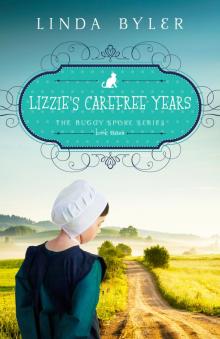 Lizzie's Carefree Years
Lizzie's Carefree Years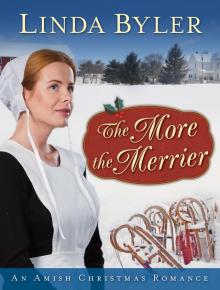 The More the Merrier
The More the Merrier Love in Unlikely Places
Love in Unlikely Places Running Around (and Such)
Running Around (and Such) Wild Horses
Wild Horses Lizzie Searches for Love Trilogy
Lizzie Searches for Love Trilogy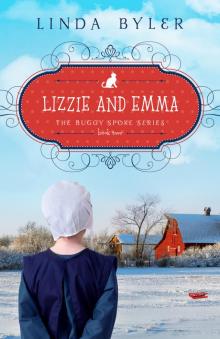 Lizzie and Emma
Lizzie and Emma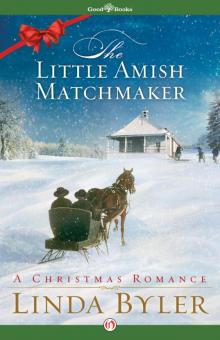 Little Amish Matchmaker
Little Amish Matchmaker The Witnesses
The Witnesses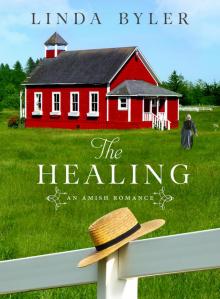 The Healing
The Healing Home Is Where the Heart Is
Home Is Where the Heart Is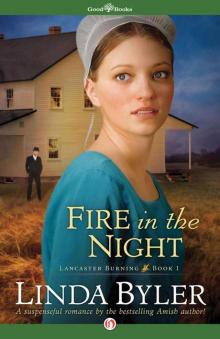 Fire in the Night
Fire in the Night When Strawberries Bloom
When Strawberries Bloom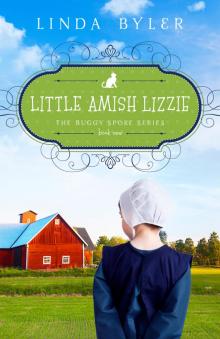 Little Amish Lizzie
Little Amish Lizzie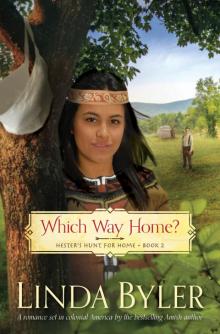 Which Way Home?
Which Way Home?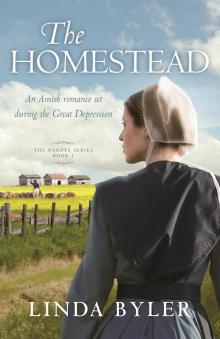 The Homestead
The Homestead Sadie’s Montana Trilogy
Sadie’s Montana Trilogy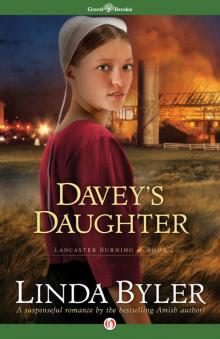 Davey's Daughter
Davey's Daughter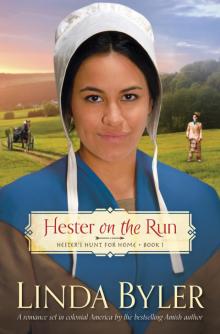 Hester on the Run
Hester on the Run Disappearances
Disappearances Big Decisions
Big Decisions Becky Meets Her Match
Becky Meets Her Match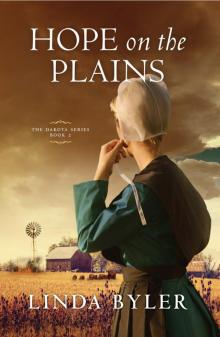 Hope on the Plains
Hope on the Plains Christmas Visitor
Christmas Visitor